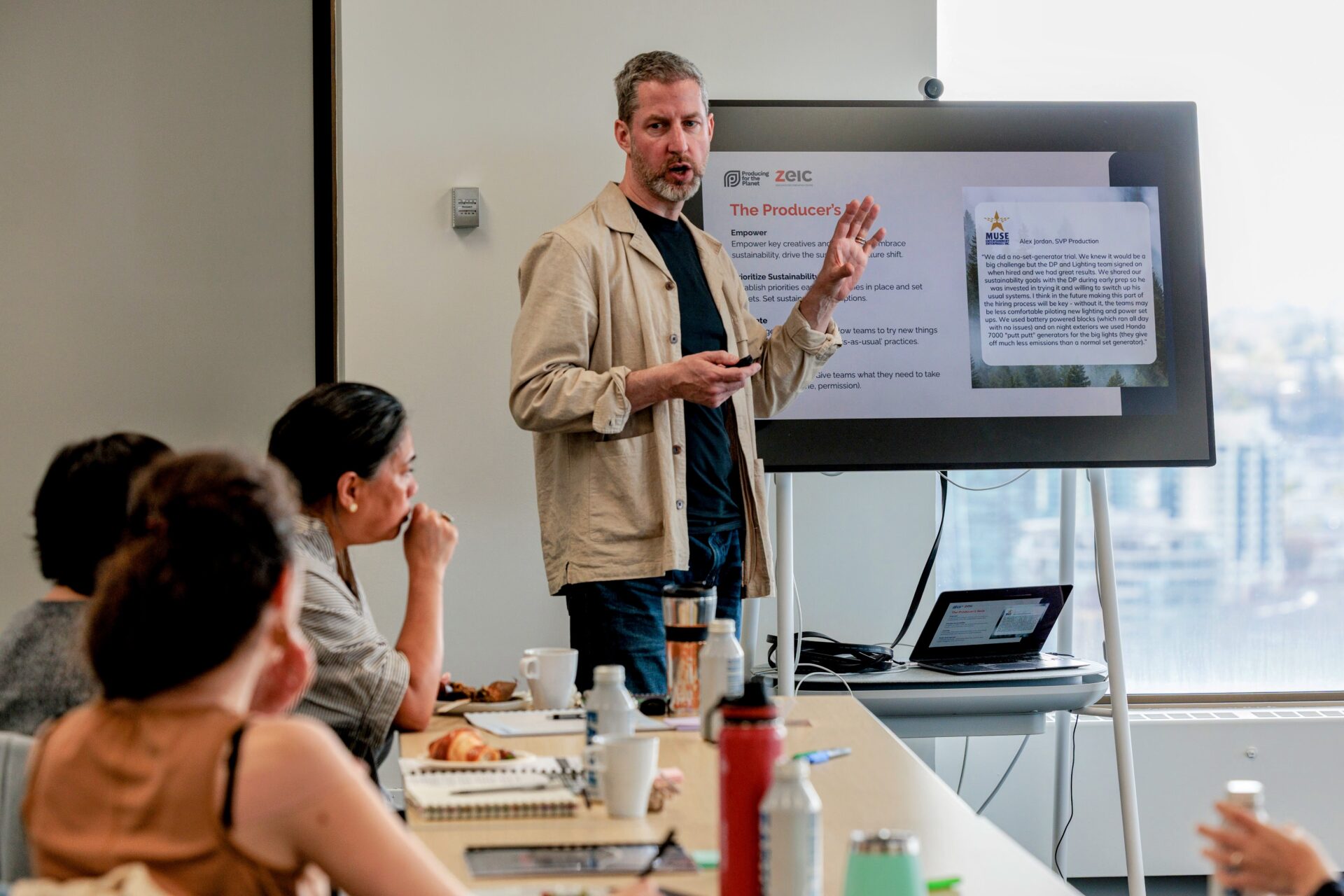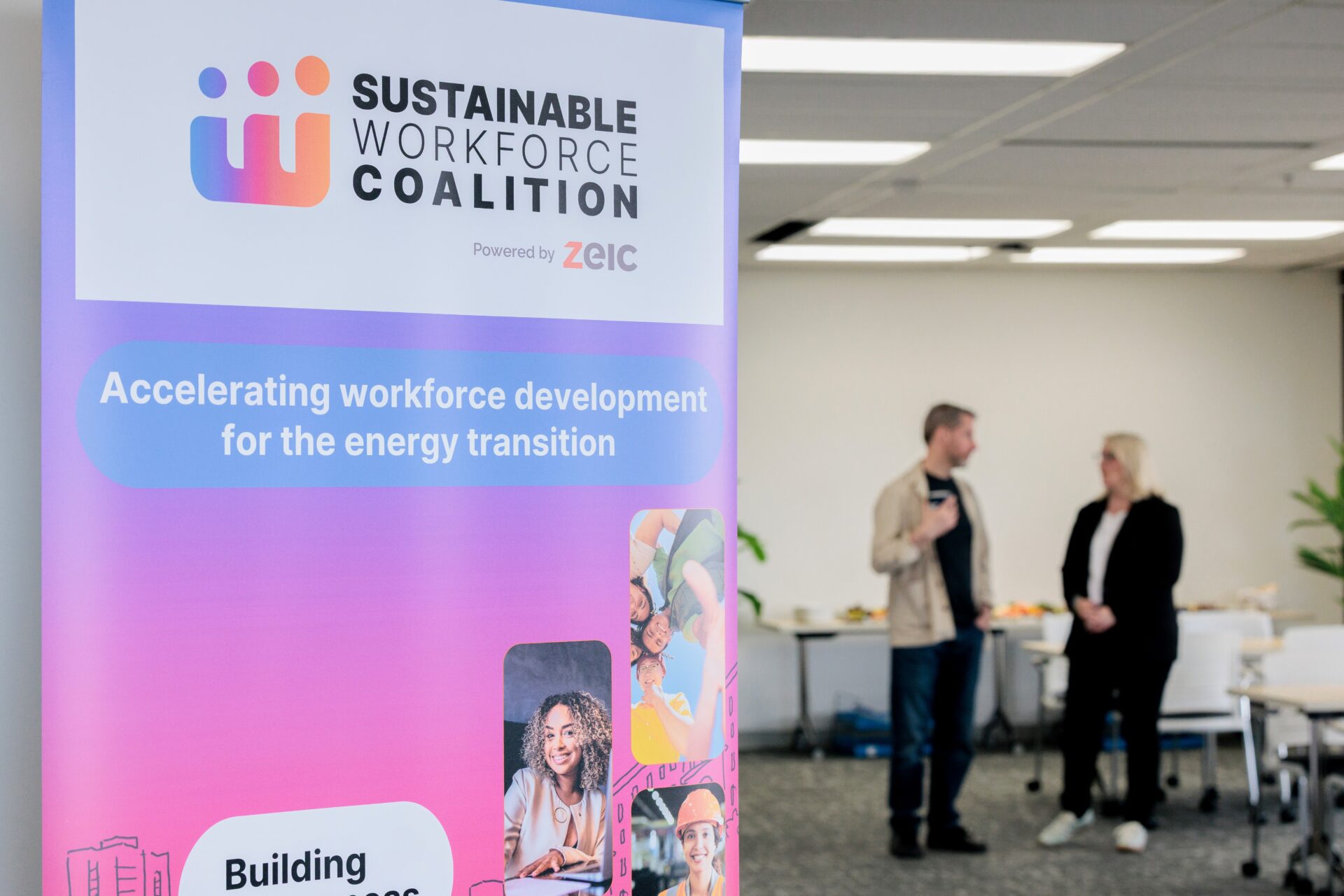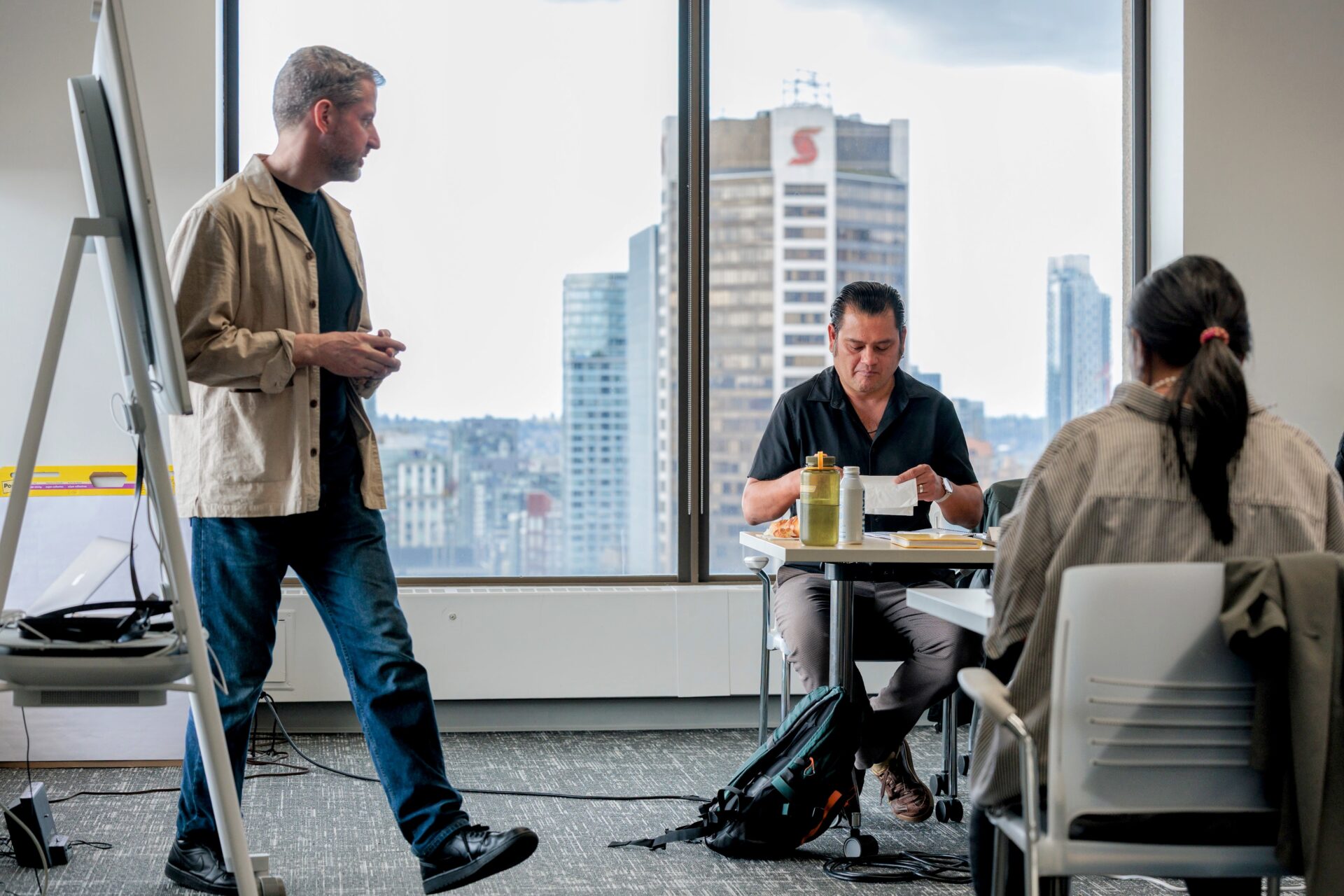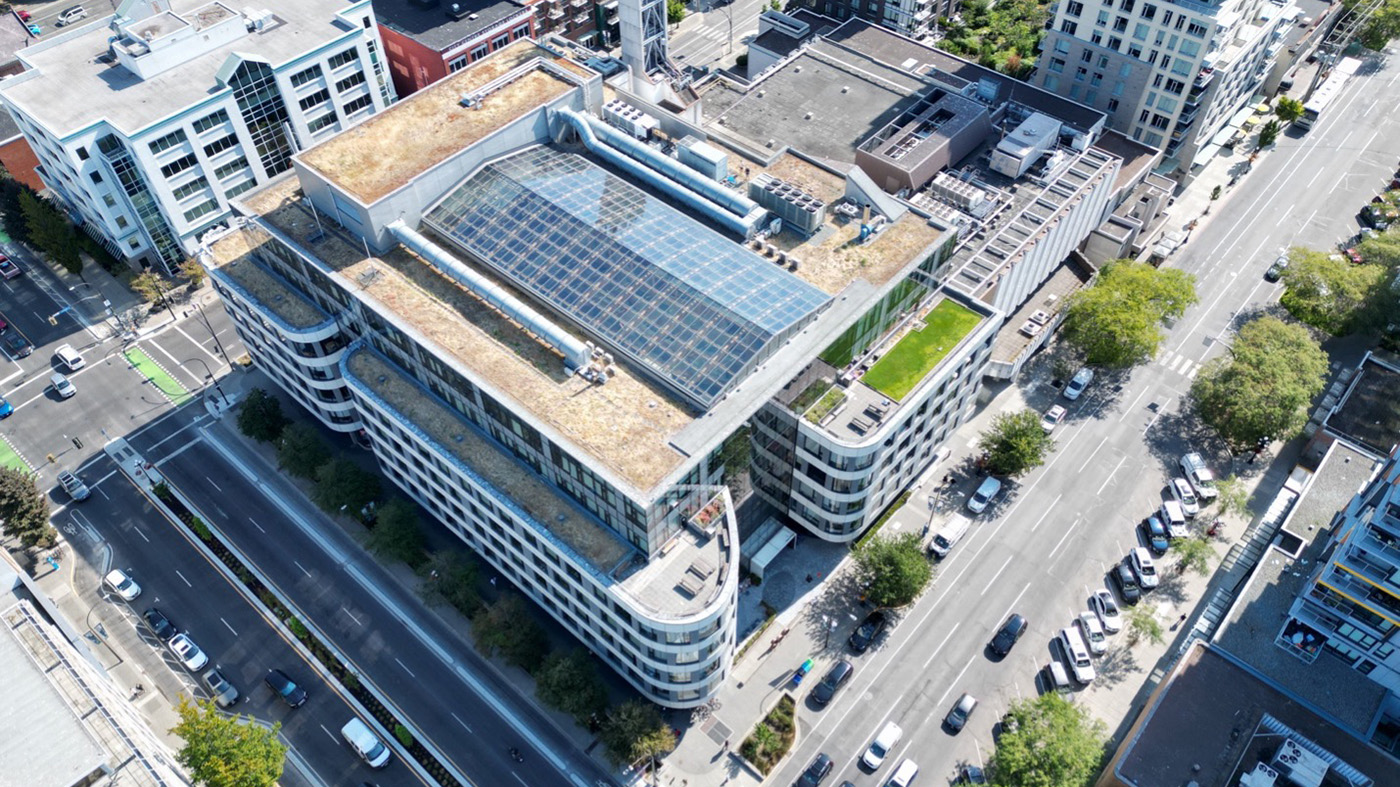
Embodied Carbon Awards Recognize Six Champions Slashing Emissions in Construction
May 30, 2025
ZEIC Board Adds Former BC Hydro CEO Bob Elton and Climate Expert Deborah Harford
June 17, 2025Over 40 leading business, labour, Indigenous, education, community, and governmental organizations have joined forces with ZEIC to help equip B.C.'s workers for the clean economy.

Andrew Williamson, Program Manager, delivers a training session (Vancouver, 2025)
After months of foundation work and collaboration behind the scenes, the Zero Emissions Innovation Centre (ZEIC) is officially launching the Sustainable Workforce Coalition (SWC) to prepare British Columbia’s workforce for a net-zero future.
With work already underway, this cross-sector coalition is hitting the ground running with tangible projects and strategic partnerships. The coalition includes over 40 cross-sector organizations representing Indigenous, labour, industry, education and government all working together to create a diverse, inclusive, and future-ready workforce. From the Aboriginal Housing Management Association, to BCIT, to the Construction Foundation of BC, to BC Hydro, the SWC and its 40+ members will be building on Metro Vancouver’s existing foundation of 185,000 green jobs.
With the clean economy growing at a fast pace, British Columbia is presented with a major opportunity and a growing labour gap. The Sustainable Workforce Coalition was created to address to bridge this gap.
Clean economy workers are a critical part of Metro Vancouver and BC’s future. The SWC will drive systems-level change across sectors by supporting workforce research, capacity-building, and programming in multiple industries to meet that need—including construction, energy management, building operations, and clean transportation.
“You can’t build a clean economy without the workforce to drive it—whether it’s retrofitting buildings with electric heat pumps, operating transit systems, or tracking emissions, it’s workers who will power our future,” says Andrew Williamson, Program Manager. “The Sustainable Workforce Coalition is bringing together employers, labour, educators, Indigenous partners, and community to help build that workforce.”


Why it matters
The clean economy is not a niche—it represents the future of British Columbia. These industries offer good-paying, stable jobs and tangible community benefits such as improved health, increased affordability, and more equitable outcomes.
But capitalizing on this opportunity requires a coordinated, strategic approach. That’s why the SWC brings together a wide range of expertise to build the collaborative infrastructure needed to ensure the clean economy works for everyone.
Delivering Impact Today
The SWC is supporting projects including a cross-border knowledge exchange between Vancouver and New York City to accelerate the adoption of thermal energy networks (TENs)—a clean energy solution that reduces emissions while creating good local jobs in design, construction, and operations. This collaboration offers innovative solutions and valuable insights for BC policymakers aiming for long term structural change. With more projects planned this year—including hands-on workshops that guide film and TV producers on practical ways to reduce emissions—the SWC is turning strategy into real-world impact, building the skilled, inclusive workforce BC needs for a successful clean economy transition.
By The Numbers: The Clean Economy
What Coalition Members Are Saying
“The Sustainable Workforce Coalition is helping build the workforce needed for a clean economy. By convening diverse stakeholders, the Coalition brings key players together for meaningful, solutions-focused dialogue. As a Canadian charity focused on workforce development in the trades, the Construction Foundation of BC is pleased to be an active participant in this important work.”
“The Sustainable Workforce Coalition brings together all relevant sectors to work together for solutions. So often we work in silos, not accessing the benefit of broader information, different perspectives and new connections. The Coalition's ability to drive change to a ‘just workforce transition’ flows from its nature as a truly broad-based group of change-makers.”




